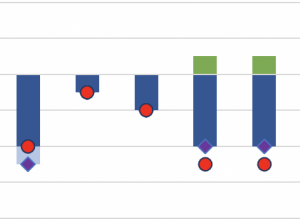The LSE is putting on a number of events relevant to the 2015 General Election in the coming months. All of the events are open to the public and are free to enter on a first come, first served basis.
Europe
Date: Wednesday 11 March 2015
Time: 6.30-8pm
Venue: CLM 2.02, Clement House
Speakers: Professor Damian Chalmers, Professor Maurice Fraser, Professor Simon Hix, Professor Sara Hobolt, Michiel Van Hulten
Chair: Tony Travers
The 2015 general election may be a stepping-stone to a referendum on whether Britain should leave the European Union. The issue of immigration, linked to the free movement of people within the EU, has become highly salient within British politics. This panel will consider the forces influencing the debate about Britain and Europe and will also hear a view about how the debate is seen from inside the core of the EU. ‘Europe’ will be one of the most important issues affecting the outcome of the 2015 election.
Damian Chalmers is Professor of European Union Law.
Maurice Fraser is Head of the European Institute, Professor of Practice in European Politics.
Simon Hix is Professor of European and Comparative Politics and Fellow of the British Academy and Head of Department of Government as LSE.
Sara Hobolt is Sutherland Chair in European Institutions in the LSE’s European Institute.
Michiel Van Hulten is a Senior Visiting Fellow in the LSE’s European Institute.
Tony Travers is Visiting Professor at LSE, specialist in issues affecting local government, director of the Greater London Group and British Government @ LSE.
British Government@LSE is an initiative currently based in the Government Department (@LSEGovernment) to promote and develop research on British Government being conducted at the LSE.
How to Run a Government
Date: Monday 16 March 2015
Time: 6.30-8pm
Venue: Old Theatre, Old Building
Speaker: Sir Michael Barber
Billions of citizens around the world are frustrated with their governments. Political leaders struggle to honour their promises and officials find it near impossible to translate ideas into action. The result? High taxes, but poor outcomes. Cynicism not just with government but with the political process.
Why is this? How could this vicious spiral be reversed?
In his new book, How to Run A Government so that citizens benefit and taxpayers don’t go crazy, due to be launched on 26 March, Michael Barber draws on his wealth of experience of working for and with government leaders the world over to present a blueprint for how to run a government. Using contemporary cases from every continent and classic examples from history, he makes a compelling case for a new approach. From Downing Street to Punjab, Charles I to Churchill, this book shows that the solution is less about ideology and more about sustained priorities, solving problems as they arise and not giving up when the going gets tough.
By applying the lessons set out in the eight chapters of the book, governments of all political persuasions can dramatically enhance their capacity to deliver results and control costs, thus delighting citizens rather than driving them crazy.
Sir Michael Barber is the co-founder of Delivery Associates and Chief Education Advisor at Pearson. Over the last two decades he has worked on government and public service reform in more than 50 countries. From 2001 to 2005 he was the first Head of the Prime Minister’s Delivery Unit in the UK. His previous books include Instruction to Deliver: Fighting to Transform Britain’s Public Services.
British Government @ LSE is an initiative led by the LSE’s Government Department (@LSEGovernment) to promote research, teaching and debate about politics and government in the UK
General Elections in Britain
Date: Tuesday 17 March 2015
Time: 5-6.30pm
Venue: Alumni Theatre, New Academic Building
Speaker: Professor Vernon Bogdanor
Chair: Tony Travers
The conduct and outcome of historic and recent general elections will be considered within the context of the 2015 contest. Is the 2015 election different from earlier ones or is the pattern set? Is Britain moving towards more coalitions and fewer one-party governments?
Vernon Bogdanor is Research Professor at the Institute for Contemporary British History at King’s College London and Professor of Politics at the New College of the Humanities.
Tony Travers is a visiting professor at LSE and is a specialist in issues affecting local government, he is director of the Greater London Group and British Government @ LSE.
The British Government course (GV311) is a new undergraduate course with open public access. The course will provide an introduction to contemporary British government, notably the institutions involved and processes of policy-making. The first part of the course will explain the evolution of British government from the earliest times, including the philosophical ideas that have come to underpin contemporary politics. The key institutions of British government will be described and analysed, focusing on factors that explain the functioning of a complex modern State. By the end of the course, students will have a practical understanding of the entire system of British government and the influences that affect it. Lectures will be given by expert speakers from within the LSE and outside.
The economy
Date: Wednesday 18 March 2015
Time: 6.30-8pm
Venue: CLM 4.02, Clement House
Speaker: Professor Alan Manning, Professor John Van Reenen
Chair: Professor Oriana Bandiara
Britain suffered a long and deep recession followed by a significant rebound in 2014-15. But the post-May Chancellor will be under pressure to cut the £90bn deficit, improve productivity, strengthen the country’s skills base and to ‘rebalance’ the economy. External threats to longer-term recovery remain substantial. This panel will analyse the problems facing the incoming government and, building on the report of the LSE Growth Commission, propose solutions.
Alan Manning is a Professor of labour economics at the LSE.
John Van Reenen is a Professor in the Department of Economics and Director of the Centre for Economic Performance at the LSE.
Professor Oriana Bandiera is Professor of Economics at LSE and director of STICERD.
British Government@LSE is an initiative currently based in the Government Department (@LSEGovernment) to promote and develop research on British Government being conducted at the LSE.






